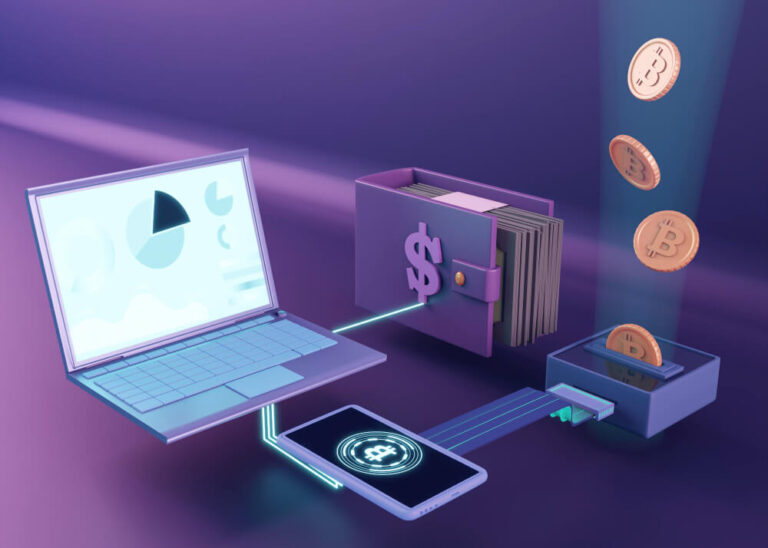Digital money has become an essential part of our lives. And if online bank transfers are widespread practice today, cryptocurrency transactions still become the choice of limited group of people. Nevertheless, the number of crypto holders and blockchain adherers is ever-growing today. Bizup Lab offers to take a closer look at cryptocurrency wallets, their types, and peculiarities of transactions carried via them.
What Is Blockchain?
Blockchain offers to sell, buy, invest, exchange, and undertake other operations with crypto safely and anonymously. For individuals and business people, cryptocurrency and digital wallets are a great alternative to fiat and bank transfers. Most people select this variant for its highest level of security and a modern approach to the asset management.
What Is a Crypto Wallet?
This is the special-purpose option to manage your crypto online. There are software and hardware formats of cryptocurrency wallets. Some people compare these crypto-friendly digital products with Internet banking. But it is worth noting that cryptocurrency wallets do not store assets but allow transactions with cryptocurrencies.

All the digital funds users have are protected by blockchain. That is why, crypto wallets are similar to intermediary checkpoints to manage assets via private & public keys together with other required information (the recipient’s wallet address, the amount to exchange/send/buy, etc.). To sum up, blockchain stores all the digital assets of cryptocurrency holders. While crypto wallets are like specific ledgers used for transactions – the tool to carry operations at users’ request.
What Are Public & Private Keys in the Context of Crypto Wallets?
There are public and private keys used for crypto wallets you should take into account. Here, we will review the most important insights about these characteristics required for your operations with cryptocurrencies:
- Public keys are similar to your bank account numbers. They are shareable with no risk to lose yout digital assets.
- Usually, a public key is a compressed crypto wallet address users share with others (investors, payers, buyers, etc.).
- Private keys are used to protect your crypto wallet and cryptocurrency assets.
- Users apply their private keys to access digital money they own via blockchain algorithms.
- Sending cryptocurrency is similar to your bank transactions. But users need public and private keys to process and complete crypto operations.
It is worth noting that there are several types of cryptocurrency wallets to consider. For example, hosted wallets are known as exchange ones. It is convenient to swap crypto there. But users have a risk to make their private keys accessible for third parties.

Software wallets or non-custodial ones are more secure. No 3rd parties are involved. The main risk is to lose your private key – in this case, the user cannot access digital funds anymore. Finally, a great option is using hardware crypto wallets, so-called “cold” ones. Cryptocurrency holders obtain special-purpose physical devices similar to USB. Even private and public keys are lost, there is a recovery seed to restore access and manage digital funds.
Bizup Lab can become your reliable assistant when it comes to cryptocurrency exchange operations. Ask our managers about help – let us show our expertise and the most comprehensive approach to clients’ requests. We will schedule any crypto swaps you need and meet your requirements and expectations!